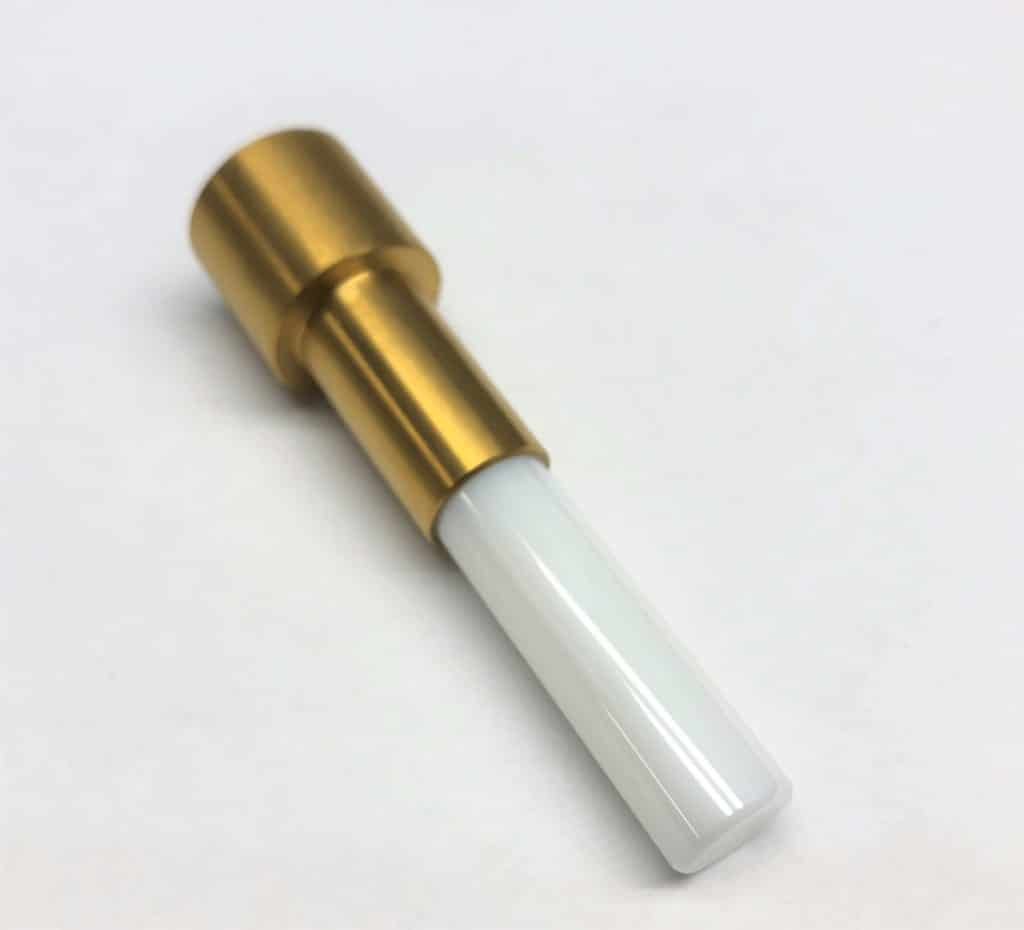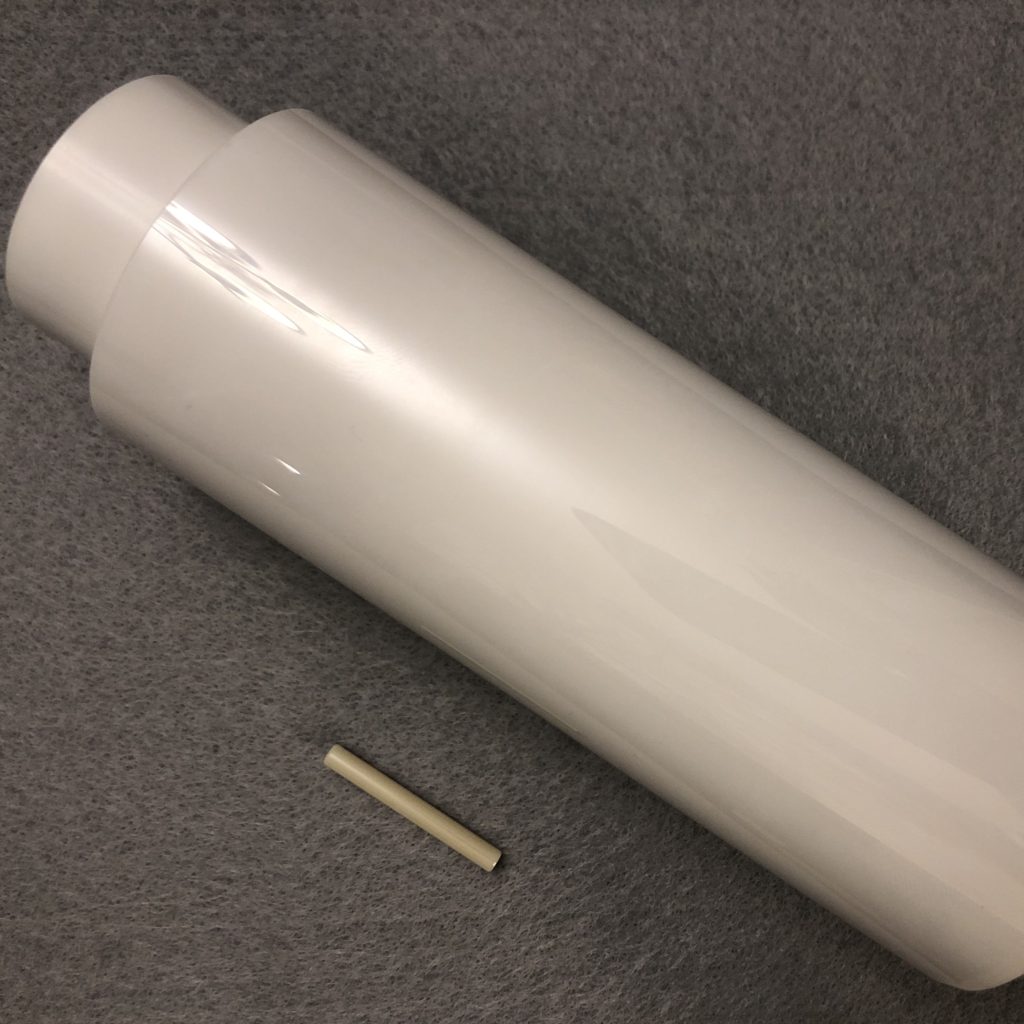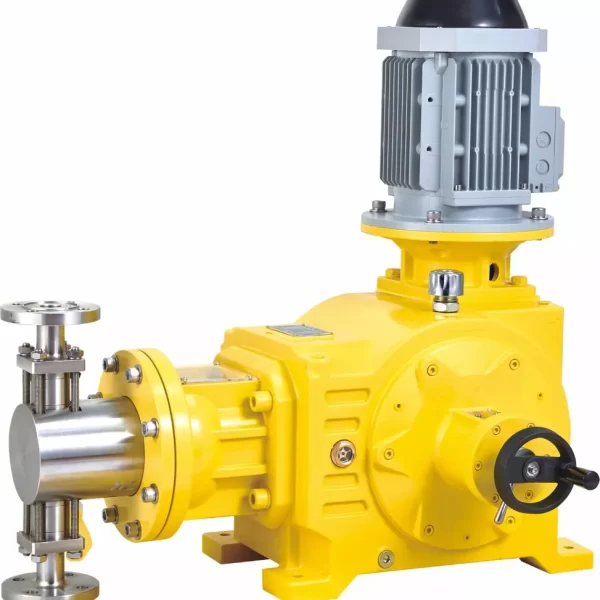Home / Industrial
We provide customized solutions to customers in performance driven sectors, such as water treatment, chemical processing, food and beverage, pharmaceuticals, and agriculture
The Challenge
A metering pump, also known simply as a metering pump or dosing pump, is a type of pump specifically designed for accurately injecting or dosing precise quantities of chemicals, additives, or other fluids into a process or system. These pumps play a critical role in various industries, including water treatment, chemical manufacturing, pharmaceuticals, agriculture, and more. The primary function of a metering pump is to deliver a highly precise and consistent volume of a chemical or fluid into a process or system. This accuracy is essential in applications where even small variations in chemical dosage can lead to significant problems or inefficiencies. Metering pumps offer fine control over the flow rate of the dosed fluid. Users can set the desired flow rate, often in milliliters per minute or other units, and the pump will deliver the fluid at that rate, ensuring a continuous and uniform dosage. These pumps are designed to maintain a high level of accuracy and repeatability in dosing. They use various mechanisms, such as diaphragms, pistons, or peristaltic action, to achieve this precision. See figure #1
Metering pumps are typically adjustable, allowing operators to change the dosage as needed, either manually or through automated control systems. This flexibility is vital in processes where chemical concentrations may need to be altered. Many metering pumps are designed to handle corrosive, abrasive, or otherwise challenging chemicals. They use materials and seals that are compatible with the specific chemical being dosed to ensure longevity and reliability. Corrosive, abrasive, or viscous chemicals may pose challenges related to materials, seals, and pump components, as well as maintenance and durability.
These pumps are often used in applications where a continuous and uninterrupted supply of a chemical or additive is required, such as in water treatment plants, chemical processing, or manufacturing. See figure #2 The continuous or frequent operation of metering pumps can lead to wear and tear on components like diaphragms, valves, seals, and pump heads. Regular maintenance is necessary to prevent leaks and ensure consistent dosing.
In some applications, metering pumps are integrated into control systems and may be equipped with sensors and monitoring devices to ensure that the dosing process remains within specified parameters. Many metering pumps have safety features to prevent over-dosing or under-dosing. These features include alarms, pressure sensors, and emergency shut-off mechanisms. Metering pumps can be used with a wide range of chemicals, from highly corrosive acids to viscous polymers and additives, making them versatile tools for various industrial processes.
To address any potential challenges, it’s important to select the right type of metering pump components for the specific application, use appropriate materials, implement effective maintenance practices, and incorporate safety measures. Regular monitoring and quality control are also crucial for reliable and accurate dosing.
The Solution
Metering pump pistons are critical components that come into direct contact with the fluid being dosed. They need to be durable, chemically resistant, and able to provide a reliable seal to ensure accurate and consistent dosing. The choice of materials for metering pump pistons depends on the type of fluid being pumped and the specific application. Common materials used for metering pump pistons include:
- Stainless Steel: Stainless steel pistons are often used in metering pumps for their excellent corrosion resistance, mechanical strength, and durability. They are suitable for a wide range of chemicals and can withstand the rigors of continuous operation.
- Ceramics: Ceramic pistons, such as alumina (aluminum oxide), are known for their high wear resistance, chemical resistance, and hardness. They are ideal for abrasive and corrosive fluids and can provide long service life. See figure #3
- Plastics: Various plastics, including PTFE (polytetrafluoroethylene) and PEEK (polyether ether ketone), are used for metering pump pistons. These materials are chemically resistant and can be chosen based on the compatibility with the dosed fluid.
- Tungsten Carbide: Tungsten carbide pistons are known for their exceptional hardness and wear resistance. They are suitable for abrasive fluids and can provide extended service life.
- Hastelloy: Hastelloy is a family of corrosion-resistant alloys that may be used for pistons in applications involving highly corrosive or aggressive chemicals.
- Inconel: Inconel is another corrosion-resistant alloy that is used in metering pump pistons, especially in applications with high-temperature and corrosive environments.
- Aluminum: In some applications, aluminum pistons are used due to their lightweight properties and adequate corrosion resistance. They may not be suitable for highly abrasive or aggressive fluids.
The choice of material depends on the specific chemical properties of the fluid being dosed, as well as the operating conditions of the pump. It’s essential to select a material that can withstand the chemical compatibility requirements, temperature variations, pressure conditions, and abrasiveness of the application to ensure the longevity and accuracy of the metering pump piston. Additionally, the design of the piston and its sealing mechanism is critical to prevent leakage and ensure precise dosing.
The Benefit
Ceramic is often considered an excellent material choice for metering pump pistons in specific applications due to several advantages it offers. While there is no one-size-fits-all material, ceramics are preferred in certain scenarios for the following reasons:
- High Wear Resistance: Ceramics, particularly alumina (aluminum oxide), are exceptionally hard and offer high wear resistance. This property is advantageous in applications where abrasive fluids or particles are present. Ceramic pistons can withstand the erosive effects of such fluids and maintain their shape and sealing properties over an extended period.
- Chemical Resistance: Ceramics are highly resistant to chemical corrosion, making them suitable for use with a wide range of corrosive or aggressive fluids. They do not react with many chemicals, ensuring that the dosed fluid remains uncontaminated.
- Temperature Stability: Ceramics can withstand a broad temperature range, including both high and low temperatures, without losing their structural integrity. This makes them suitable for applications with extreme temperature variations.
- Low Friction: Ceramic pistons exhibit low friction and provide smooth, consistent movement within the pump, reducing wear on both the piston and the pump components. This can lead to improved overall efficiency.
- Dimensional Stability: Ceramics maintain their shape and dimensional stability over time, ensuring that the piston’s accuracy and sealing capabilities remain consistent throughout its service life.
- Long Service Life: The wear resistance and durability of ceramic pistons contribute to their long service life, reducing the need for frequent replacements and maintenance.
- Chemical Purity: Ceramics are inherently pure materials and do not leach or contaminate the dosed fluid. This is critical in applications where maintaining the chemical purity of the fluid is essential.
- Biocompatibility: For applications in the pharmaceutical and food industries, ceramics can be an attractive choice because they are biocompatible and do not react with the fluids they come into contact with.
The choice of piston material should consider the specific chemical compatibility, temperature range, and operating conditions of the application. In some cases, ceramics may be the best choice, while in others, materials such as stainless steel, plastics, or specific alloys may be more appropriate. The selection of the piston material should be based on a thorough assessment of the requirements of the individual application.
At Analytical Components LLC, we focus on the critical finishing, processing and fitment of precision hard materials that are important for our customer applications. Our experience with utilizing ultra hard materials like ceramics in combination with a variety of ferrule materials has allowed us to manufacture piston assemblies for some of the most demanding metering applications.
Figure #1 (Basic Reciprocating Pump Designs)
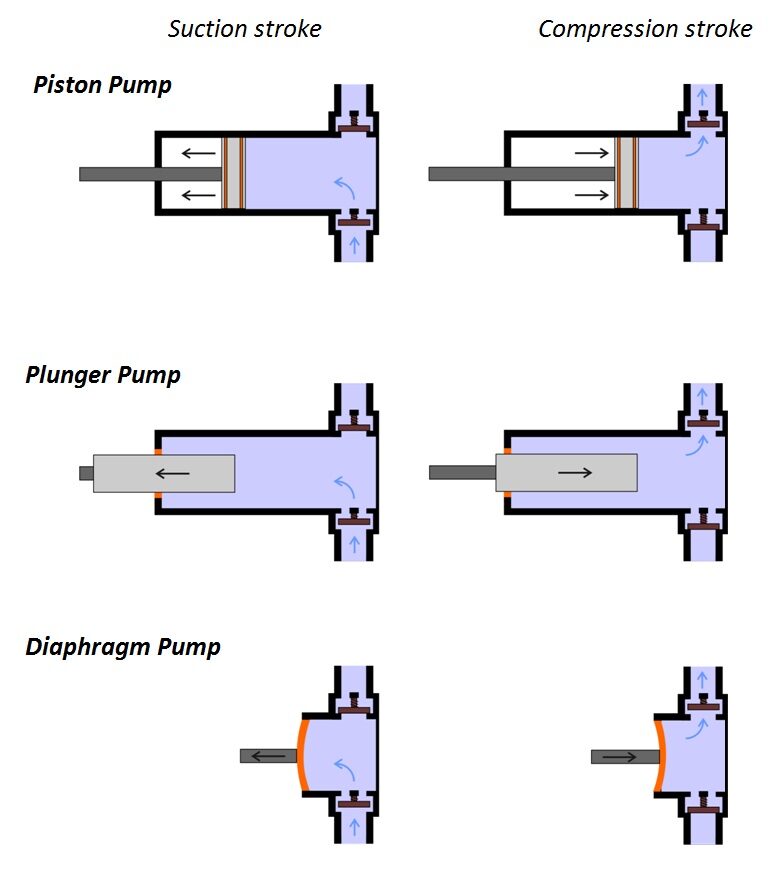
Figure #2 (Multihead Industrial Chemical Piston Metering Pump)
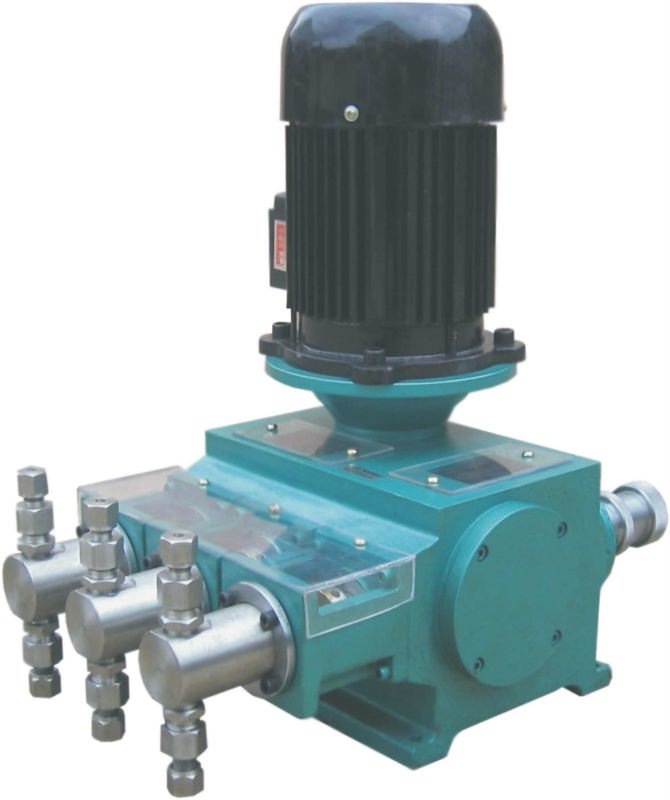
Figure #3 (Chemical Metering Ceramic Pump Pistons manufactured by Analytical Components LLC)
